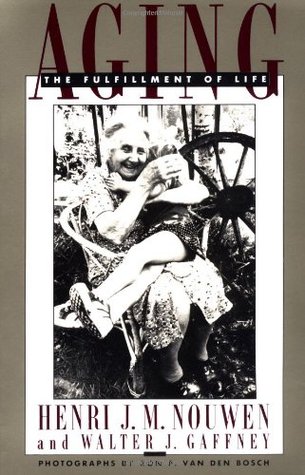For Older Christians: The Age of Influence Begins
By Neil Earle
 Neil's friend William Adrian kept motivating young people until well into his 90s.
Neil's friend William Adrian kept motivating young people until well into his 90s.One of my journalistic colleagues, the late great John Halford used to say, “When you retire, you lose corporate power but gain in influence.”
I thought: what a typical way for the effervescent John Halford to look at aging. But of course he was right. The Age Wave is a major trend of our time. Stats Can reports that more Canadians are aged 65-plus right now than are under 15. We are the fastest growing group. Other agencies opine that citizens aged 100 years or more will triple by 2031. That’s impact.
These emerging realities affect our churches and how we do church. Like the Canadian winters, preparation is the key. The Bible itself gives us two snapshots of realistic preparation for aging.
In 2 Samuel 21:15-21 David the warrior king, is near the end of his life. He is leading the troops into battle one last time. “David went down with his men to fight against the Philistines, and he became exhausted. And Ish-bi-Benob, whose bronze spear weighed three hundred shekels (7 ½ lbs) said he would kill David. But Abishai son of Zeruiah came to David’s rescue…Then David’s men swore to him saying, Never again will you go out with us to battle, so that the lamp of Israel will not be extinguished.”
Here are indications that
1.) Its all right to retire should you feel moved to do so and
2.) There are ways to serve appropriate to changing realities. David apparently found this out, writing up one of the great “legacy poems” in the Bible, 2 Samuel 22, and no doubt collecting together his greatest gift to humanity, the Book of Psalms.
Snapshot Two: In the letter to Philemon we see the “influence principle” at work very clearly. Here St. Paul is urging one of his younger elders (Philemon) to take back an escaped slave in recognition of the young man’s outstanding service.
Christians owning household servants was a delicate matter so Paul has to play the “age card.” He wants Philemon to do the right thing but to do it voluntarily. The letter is a masterpiece of psychology as Paul states: “Therefore although in Christ I could be bold and order you to do what you ought to do, yet I appeal to you on the basis of love. I then as Paul – an old man and now also a prisoner of Jesus Christ – appeal to you for my son Onesimus who became my son while I was in chains” (Philemon 8-9).
This appeal was bound to penetrate hardened defenses. The promise of having influence in old age comes into play forcefully if we have lived our lives under God’s grace and guidance. For then we have something of value to pass on.
It is from that position that we are able to exert real influence on the generations below us. A track record has been created, the art of timing has been learned and younger people know we are not in competition with them. Nothing is worse than meddlesome old people, but a good word in due season, ah, how sweet it is! A good example is even better (Titus 2:2-15).
 President Dwight David Eisenhower (1953-1961) successfully steered his country through major crises in spite of two heart attacks. Note insignia on shirt.
President Dwight David Eisenhower (1953-1961) successfully steered his country through major crises in spite of two heart attacks. Note insignia on shirt.A Treatise on Aging
It is comforting to know that the Bible has been way ahead of us on this subject. The Book of Ecclesiastes is almost a treatise on later life and looking back. Remember the elegant pen portrait in Ecclesiastes 12:
“Remember your Creator in the days of your youth, before the time of trouble comes (how honest!) and the years draw near when you will say, ‘I see no purpose inn them.’ Remember him before the sun and light give way to darkness, before the moon and the stars grow dim (vision problems), and the cloud retune with the rain (memory loss) – when the guardians of the house tremble (the arms) and the strong men stoop (the kegs) when the grinders cease because they are few…when the noise of the mill is low, when the chirping of the sparrow grows faint (hearing declines) and the songbirds fall silent; when men are afraid of a steep place, and the street is full of terrors (a walker is needed), when the blossom whitens on the almond tree and the grasshopper is a burden and desire fails” (verse 1-5 NEB and NAV).
This gentle reminder is God’s empathetic declaration that he has a purpose in all stages of our life. The Creator ordained the life cycle for many things and one of them was that as our physical prowess fades we may turn more naturally to Him. Psalm 103 says “He knows our frame; he remembers that we are dust.” For godly men and women, the petition of Psalm 71:9 is pertinent, “Do not cast me away when I am old; and not forsake me when my strength is gone.” Then the hopeful confidence of Psalm 92, “The righteous will flourish like a palm free…They still bear fruit in old age, they will stay fresh and green, proclaiming the Lord is upright” (verse 12-14).
Yes, God is with us in our senior years, though like King David, we will have to make adjustments. Here are some themes for senior Christians to maximize their age of influence.
Leverage the Past
First, try to leverage the past. This means drawing upon the experiences of Early Life to live usefully in the present. This is vital for a noted writer has stated that “the strongest factor in living long is having a level of daily social activity that provides physical and mental stimulation.” The cliché is “stay involved” and like most clichés this is very true. We’ve all seen this at work. There are seniors in our congregations I knew who have been Olympic figure skaters yet delightedly taught nervous church kids to step on the ice. Others delivered meals-on-wheels to people in their local community older than they are.
As seniors we have the power to inspire. In my gym class there is a couple both nearing age 90 who show up to work out and I stop what I’m doing. I’m in awe – and I tell them. My wife and I routinely play softball with a former teacher who was aged 85 last time we coaxed her age out of her. Of course we can’t all be this heroic but we can let other people prod us to keep moving, a key to longevity at any age.
 Spiritual director Henri Nouwen offers his thoughful advice on this important subject.
Spiritual director Henri Nouwen offers his thoughful advice on this important subject.A Hopeful Future
Next, we need to stay open to the future, to tap into that wonderful Christian virtue of hope! Aged Simeon was like that. As a retired priest in the first century Jewish temple he had been divinely promised that he would bless his people’s Messiah before he died. When Joseph and Mary showed up with infant Jesus in Jerusalem that special day, Simeon wasted no time. “He took him up in his arms and blessed God and said, ‘Lord, now you are letting your servant depart in peace, according to your word; for my eyes have seen your salvation” (Luke 2:29-31).
“To depart in peace.” What a blessing. The Christian counselor Henri Nouwen wrote years ago, that “it belongs to the greatness of men and women that the meaning of their existence escapes the power of calculations and predictions.” Yes, there are dread statistics out there about Alzheimers and Dementia and TV commercials can scare us silly but the Simeons don’t let fear predominate. Simeon himself reflected the sober determination of the prophet Habakkuk, “I will take my stand at my watch post and station myself on the tower and look out to see what he will say to me” (Habakkuk 2:1-2).
It’s a faith-inducing question: What else might God have in store? Like Simeon and Habakkuk we can pray for courage and search out Bible verses that show us what God has promised us. In so doing we can find what Nouwen calls “a new recreating vision.”
Outflanking the Arch-Fear
Of course there is no getting around the reality of death and dying, what Robert Browning called “the Arch Fear.” Even here Bible promises act like an antidote. “The righteous finds refuge in his death” it says in Proverbs 14:32. “Precious in the sight of the Lord is the death of those faithful to him” Psalm 116:15 assures us, showing God does not forget us in our most personal struggles. The Bible almost ends with a capstone verse on death in Revelation 14:13, “Write, Blessed are the dead who die in the Lord from now on. ‘Yes,’ says the Spirit, ‘they will rest from their labor, for their deeds follow them.’”
Since Jesus’ resurrection and ascension, death has been defeated though it still exerts power over us. But God is with us in even those dark valleys, especially in the dark times. My dear aunt Blanche was slowly dying of a wasting disease and confessed to her devout Methodist husband, “I am afraid to die.” He responded wisely with, “My dear, when it comes, you may not even be aware of it.” And so it happened. This gentle lady passed into a quiet coma and then into peaceful sleep, but she was sleeping in Jesus, and that makes all the difference in the world (1 Thessalonians 4:14).
 This British comedy showed how retired pensioners saved the day for an ambitious young dreamer – by some accounts seniors are making a comeback.
This British comedy showed how retired pensioners saved the day for an ambitious young dreamer – by some accounts seniors are making a comeback.“Burning the Tapes”
God’s promises are like gold at this stage of life. The story goes that when the Christian theologian Augustine lay dying he had had written on the walls of his room all of the Pentitential Psalms. These are Psalms 6, 32, 51, 102, 130, 143. Skim them and you’ll see why. Augustine had been a wild and promiscuous youth and his conscience dogged him all through his life. But he had learned with God’s help to “burn the tapes,” to stop replaying in his mind the bad deeds and decisions that had almost ruined his life earlier.
That is something we can all “relate to,” as we say today.
No one has lived a perfect life or even come close. But God has antidotes to these debilitating fears, tears and regrets that can undermine our age of influence. The only way to get air out of a bottle is to pour something else in and the best way to get bad thoughts out is to pour in the healing balm of God’s word. Seniors know all about late night regrets and 4 AM guilt feelings. King David certainly had more than his share of misdeeds to haunt him. But often we find him in the Psalms, searching the scripture, reinforcing his sense of God’s forgiveness “in the watches of the night” (Psalm 63:6).
Some of God’s greatest servants had lots on their plate to feel guilty about. Think of the patriarch Jacob, for example, who messed up his twelve sons really badly and for which God was angry (Hosea 12:2-6). But thanks to God’s mercy and forbearance and Jacob’s “hanging in there” the patriarch got to see and bless his grandchildren after a sad separation. “All’s well that ends well.” Again, in the book called Second Peter we see the chief apostle Simon Peter writing eloquently about God’s “great and precious promises” in his farewell address. As some writers say, Peter must have been haunted by a rooster’s crow his whole life through (Luke 22:61-62). Yet here he is writing confidently about his own decease (2 Peter 1:15) and ending with that clarion call to all Christians to “grow in the grace and knowledge of our Lord and Savior Jesus Christ.”
“Age is Opportunity”
We never stop learning and growing. The poet Longfellow wrote that “age is opportunity” and the Christian poet T.S. Eliot said, “old men should be explorers.”
So with fears and regrets to one side, we set out on the age of influence. Marj, a college classmate from the 1960s, writes that with the death of her parents she suddenly saw herself as “an ancestor figure” ready to pass on the story of “her tribe,” as elders always did until today’s present obsession with youth (now fading). So Marj posts eloquent and moving tributes to her father’s accomplishments in World War Two and her mother’s wisdom on Facebook. These vignettes make inspiring reading.
Marj’s Christian faith encourages her in this labour of love. Yes, God has ordained the human life cycle and all its phases. That includes the age of influence many of us reading this never expected to have to pass through. But we can taker heart – the same Faith that inspired us at conversion can help us make a success of this stage of life as well. It’s a promise!